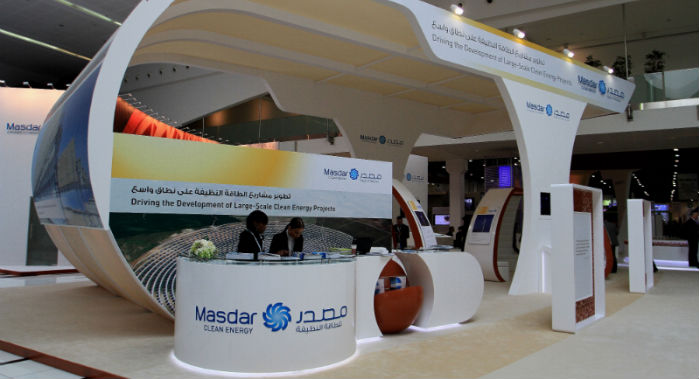ADNOC, Masdar JV Launch First Carbon Capture Project
The project will allow the UAE to preserve its natural gas for domestic electricity generation.

Abu Dhabi National Oil Company (ADNOC) and Masdar signed a joint venture on Sunday to explore and develop commercial-scale projects for carbon capture, usage and storage (CCUS) for the first time in the region.
ADNOC owns 51 per cent of the joint venture while Masdar owns the rest.
As a part of the venture, ADNOC and Masdar jointly awarded a Dhs450 million engineering, procurement and construction contract to Dodsal Group to build a carbon dioxide compression facility and a 50 km pipeline for its first CCUS project.
In the joint venture’s first CCUS project, carbon dioxide will initially be captured onsite at the UAE’s largest steelmaker’s facility, Emirates Steel. It will be then compressed and transported along the 50 km pipeline to oil fields operated by ADNOC.
Carbon dioxide, which will be stored underground after being transported through the pipeline, will then be injected into oil fields to enhance recovery.
The project is set to be completed by 2016 and will sequester up to 800,000 tonnes of carbon dioxide annually.
The joint venture is the first phase of an industrial-scale CCUS network planned as part of Abu Dhabi’s efforts to decarbonize its economy and create a low-carbon power generation industry.
Carbon capture solutions are often cited as a critical strategy to reduce the impact of climate change.
According to the International Energy Agency (IEA), up to 20 per cent of global carbon dioxide emissions will need to be mitigated by carbon, capture and storage projects in the power and industrial sectors by 2050.
To meet this goal, the IEA estimates that 100 carbon capture projects would have to be developed by 2020 and over 3,000 by 2050, requiring an investment of an estimated three trillion dollars by 2050.
“With energy demands surging to unprecedented levels, along with greenhouse gas emissions, the Middle East must adopt clean technologies, renewable energy and carbon mitigation solutions,” said Dr. Sultan Al Jaber, CEO of Masdar.
“Through collaboration between ADNOC and Masdar, the UAE is developing a blueprint for how to incubate and establish a low-carbon, new-energy industry in the region.”
The UAE has traditionally used hydrocarbon gases in some of the Abu Dhabi fields to enhance oil production. However, with the country’s rising energy demand, the CCUS project will allow the UAE to preserve its natural gas for domestic electricity generation.
